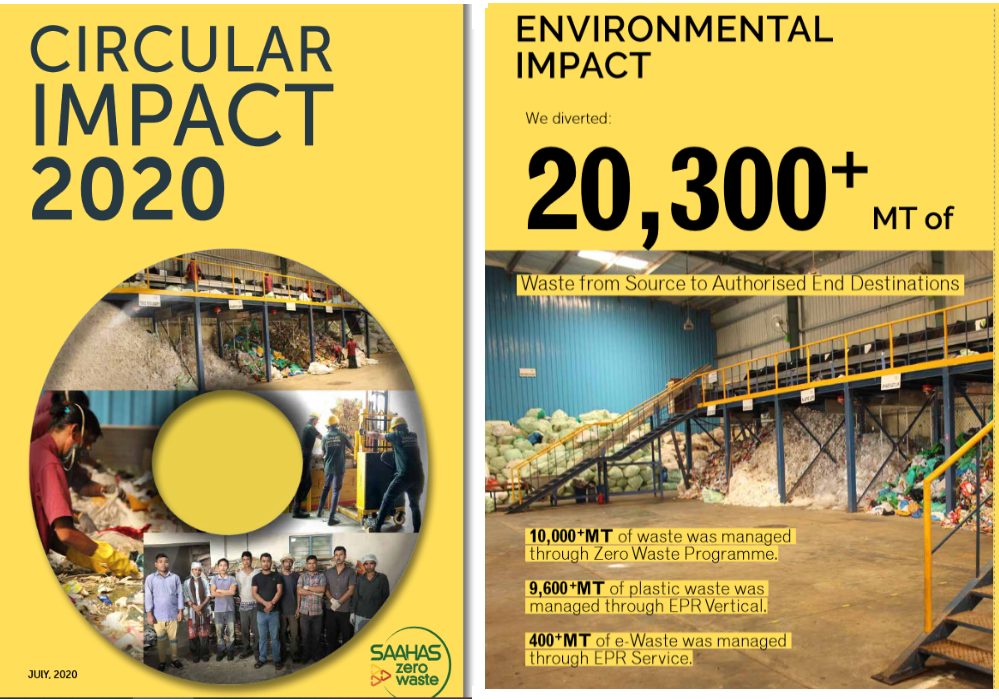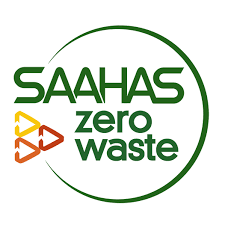From Wilma Rodrigues – Founder, CEO – Saahas Zero Waste
Saahas Zero Waste is registered as a “small” company under the micro, small and medium enterprises regulations in India. This small status does not deter us in any way from our purpose. We are committed to be the face of environmental and social change in the waste management sector. This change is enabled through our business model which includes revenues from waste and revenues from a service fee. 84% of our total revenues come from the service fee that our customers pay us. It is this revenue that makes it possible for us to give equal attention to waste streams, including plastic waste which has low or negative economic value. This revenue also means that we invest in an extensive field team and also in technology which enables sorting of the dry waste into 35-37 categories. This intensive operations ensures that we recover 98% of resources embedded in the waste that we receive from our customers and there is a near zero dependence on a landfill. In 2019-20, on an average we managed 65 tonnes of waste per day. So the environmental impact on account of our business model is significant.
Saahas Zero Waste | Circular Economy | Saahas HBP IIMB case study
Again our business model has a high impact on social change where 83 % of our team of 304 employees are people from the base of the pyramid. Our dual revenue model makes it viable for us to pay minimum wages with all statutory benefits to our field team. We are also happy to bring on board qualified and experienced professionals who are equally committed to the vision and mission of our company.
As a member of UNDP’s Business Call to Action (BctA) we are also measuring our impact against the 17 Sustainable Development Goals (SDGs) put out by the United Nations. On the environmental front we are able to support SDG 11: Sustainable Cities and Communities, SDG 12: Responsible Consumption and Production, SDG 13: Climate Change and SDG 14: Life below Water. Likewise, on the social front our work supports India as we move towards SDG 1: No Poverty, SDG 5: Gender Equality, SDG 8: Decent Work and SDG 9: Reduced Inequalities. In 2020, we are in the midst of a pandemic, climate change is threatening our existence and we have 1% of the world’s population enjoying 50% of its wealth. As Kate Raworth, author and founder of Doughnut Economics explains, “Humanity’s 21st century challenge is clear– to meet the needs of all people within the means of this extraordinary, unique living planet so that we and the rest of nature can thrive.To achieve this, we now know that we need to transition from the profit only- driven, linear economic model to a circular economy that will focus on both environmental and social change. When it comes to waste, Saahas Zero Waste has already demonstrated that this works not just in theory but also on the ground and in practice.
The full report is here

